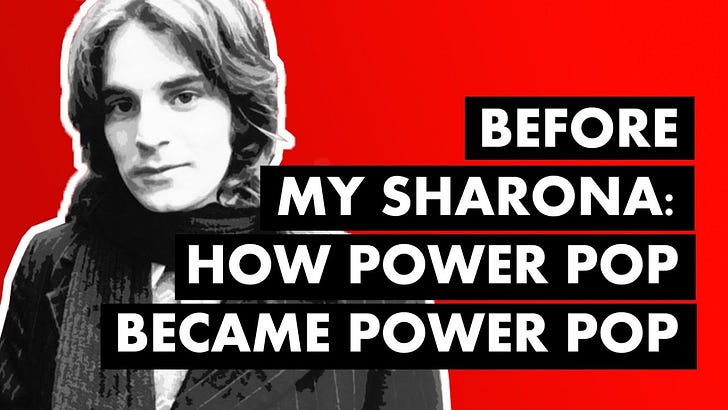Etcetera #46: Tomatoes, QR Codes, Hedges
Hello. Here's the latest set of links. The first article about tomatoes is, I think, something of an ideal article for this newsletter—it covers history, geography, botany, etymology and much more to illuminate a seemingly mundane, everyday thing. I really liked it and I hope you do too.
See you next time.
Unhealthy, Smelly, and Strange: Why Italians Avoided Tomatoes for Centuries — lithub.com
William Alexander traces the arrival of the tomato in Europe and why we were initially so reluctant to eat them. The article also explains why the tomato and tomatillo have the same names in several Romance languages (and are close cousins in English):
In fact, Spain’s major 16th-century contribution to the tomato, other than “discovering” it, may have been confusing it with the tomatillo. The Aztecs called the tomato xitomatl and the (distantly related) tomatillo miltomatl, the root for each, tomatl, meaning “round fruit,” with prefixes to distinguish the different varieties. Unfortunately, Spanish writers of the 16th century picked up only the root, calling both tomate in Spanish, and that included Francisco Hernández, Spain’s most prominent physician and naturalist.
See also: Why are tomatoes red? The answer goes back a lot further than you'd imagine. About 65 million years ago a meteor impact burned up most of the planet, caused a massive ash cloud and led to the extinction of most dinosaurs. After that, the plant that eventually evolved into the tomato tripled the size of its genome, adding at least one set of genes that turned its fruit a bright red. This suggests the tomato’s distant ancestor experienced conditions that made being a plant pretty difficult. Expanding its genome gave the tomato more genetic options and increased its chances of survival.
Also see also: It's late summer, tomato time, so lettuce not forget that the BLT is best when considered a tomato sandwich that's seasoned with bacon.
The Modern QR Code Life — brainbaking.com
A piece about the techno-solutionist use of QR codes with particular focus on quick service restaurants. I broadly agree with all this—the bit about sigh having to get your phone out feels slightly overplayed but I get that different people have different relationships with their devices, so whatever.
What's not touched on here is the risk associated with QR codes. I recently went to Liverpool and ate in one of these large food courts with a dozen stalls each cooking and serving different cuisines and delivering to a central searing area. I wondered how easy it would be to replace any of the QR codes that were sellotaped to the tables with one of one's own design. Perhaps the destination website could look very much like the menu and payment processing site, and perhaps it could steal payment information or simply take the payment and deposit it somewhere altogether different. Less a food court and more of a phishing pond.
How Hedges Became the Unofficial Emblem of Great Britain — www.smithsonianmag.com
Peter Ross on the great British hedge. Excellent photos from Kieran Dodds.
Hedges tend toward anonymity. Unlike trees—those divas forever celebrated for their lofty nobility and sentinel grace—hedges produce few stars. Which is not to say there are none. The so-called Phoenix Hedge, in the Bristol suburb of Henleaze, is 295 feet long and made up of several species including ash, elm and dog rose. Around 800 years old, it is a survivor. Age in hedges is, however, a slippery concept. They yearn to stretch up and become mature trees, but pruning keeps them forever young. “A hedge is in a state of suspended animation,” says Chris Crowder, head gardener at Levens Hall, a grand manor in Cumbria in the north of England. “The individual plants may be ancient and gnarled, but because they have never been allowed to grow into a tree, they never reach old age.”
Grieving, dreaming and 'Drinking in L.A.' — www.cbc.ca
In a recent issue I included an article about Len's 1999 song 'Steal My Sunshine'. A slightly earlier version of this style of song was Bran Van 3000's 'Drinking in L.A.', another genre-clashing smash that I also think holds up quite well in spite of itself.
This is a personal piece by Andrea Warner about how the song helped her through a traumatic part of her life:
Twenty-five years later, 'Drinking in L.A.' is still a visceral memory avalanche that buries me back in 1997, but it also builds me back up and reminds me of the good things that followed all of the crushing grief.
Etc.
Alexander Iadarola lists the 21st century content creator's most important characteristics. I cannot immediately tell how serious this post is—it straddles that line between actual theory and ironic commentary—but I agree with the majority of the points he makes.
"Books continue to flourish as a commodity, but to other purposes: as vectors of conversation, signalling and setters of agenda. Don’t worry about cheating the author of their impact. Writing a book is mainly about conferring a degree of status on the author, getting her invited to literary festivals and onto Front Row. Hearing it talked about is all that matters." On pretending to have read books. See also: antilibraries.
The natural resonant frequencies of Janet Jackson's 'Rhythm Nation' could cause laptops to crash.
How the wide variety of ketchups (or catsups) narrowed to just one. See also: ketchups are non-Newtonian fluids; to best extract them from a glass Heinz bottle, hit the '57 Varieties' label.
I'm working my way through a few of the Trash Theory videos I'd saved to watch later. This one is particularly good, taking in all of power pop from the early 1960s onwards:
The dreaded Tweets
[tweet https://twitter.com/RNIB/status/1562752028182716417] [tweet https://twitter.com/Rooflemonger/status/1560109993306759169]
Outro
This is a reader-supported newsletter. You can optionally support it by subscribing for £2 per month (or your local currency equivalent)—see the links below.
If you liked this issue, feel free to share it wherever you spend time online. The more people that read, subscribe and become members, the more time I can spend on it and the better it will be.
It’s great when people send links or feedback. Reply to the email (it’ll only go to me) or find me on Twitter @coldbrain.




